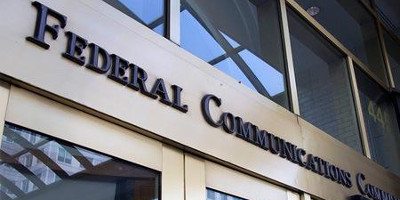The professional video industry's #1 source for news, trends and product and tech information. Sign up below.
You are now subscribed
Your newsletter sign-up was successful
WASHINGTON—The FCC this week adopted new rules that prohibit excessive franchise fees and explains that local governments may not regulate most non-cable services, including broadband internet access service, offered over a cable system. These rules are a response to a remand by the U.S. Court of Appeals for the Sixth Circuit and set forth how local franchising authorities may regulate cable operators pursuant to the Communications Act.

The rule was adopted despite an 11th hour effort from U.S. Senators, who told FCC Chairman Ajit Pai that the new regulations could threaten the future of cable access TV, which relies on such fees.
“If implemented, the Order puts at risk critical funding for public, educational or governmental (PEG) stations, which are vital resources for residents across the country,” the Senators wrote. “These stations connect Americans to their communities, catalyze civic engagement and keep us up to date on the local issues and activities that affect our lives.
“Your proposal would force local government to decide between supporting PEG stations and supporting other important services for critical community institutions like schools and public safety buildings,” the Senators added.
In all, 14 senators signed the letter, including Edward J. Markey (D.-MA) and Sen. Elizabeth Warren (D-MA).
Chairman Pai, Commissioners O’Rielly and Carr approved the adoption while Commissioners Rosenworcel and Starks dissented.
Rosenworcel said the adoption of the new rules could have a detrimental impact on local community coverage.
The professional video industry's #1 source for news, trends and product and tech information. Sign up below.
“This agency should seize opportunities to reinvigorate local newsgathering and community coverage,” she said. “In fact, that has traditionally been a hallmark of Federal Communications Commission media policy.
“But on that score, today’s decision misses the mark,” she added. “That’s because it cuts at public, educational and governmental channels across the country. It goes beyond placing reasonable limits on contributions subject to the statutory franchise fee and jeopardizes the day-to-day costs, like staff and overhead, required to run such stations. I’m not the only one with this concern. Take a look at the record. We’ve heard from thousands of communities across the country worried we are cutting the operations of so many local channels. I am saddened that this agency refuses to listen.”
Under the Communications Act, every local franchising authority and every cable operator that offers cable service must comply with the Act’s cable franchising provisions, and local franchising authorities may charge franchise fees that are capped at 5% of a cable operator’s revenue derived from the provision of cable service. But some local governments, through the practice of requiring “in-kind contributions,” have been imposing franchise fees that exceed the 5% cap. In addition to being unlawful, this practice discourages broadband investment, deployment and innovation by cable operators.
In order to rein in overreach by local franchising authorities, and facilitate the deployment of broadband infrastructure, the commission concluded today that, under the Act, cable-related, non-monetary contributions required by a local franchise are franchise fees subject to the statutory 5% cap with limited exceptions, including an exemption for certain capital costs related to public, educational and governmental access channels.
It has also prohibited, pursuant to the Act, local franchising authorities from regulating the provision of most non-cable services, including broadband internet access service, that cable operators offer over their cable systems.
In addition, the commission decided that any state or local regulation of a cable operator’s non-cable services that imposes obligations on franchised cable operators beyond what the Communications Act allows is preempted.
Finally, the commission concluded that requirements concerning local franchising authority regulation of cable operators should apply to state-level franchising actions and state regulations related to local franchising.
Tom has covered the broadcast technology market for the past 25 years, including three years handling member communications for the National Association of Broadcasters followed by a year as editor of Video Technology News and DTV Business executive newsletters for Phillips Publishing. In 1999 he launched digitalbroadcasting.com for internet B2B portal Verticalnet. He is also a charter member of the CTA's Academy of Digital TV Pioneers. Since 2001, he has been editor-in-chief of TV Tech (www.tvtech.com), the leading source of news and information on broadcast and related media technology and is a frequent contributor and moderator to the brand’s Tech Leadership events.

